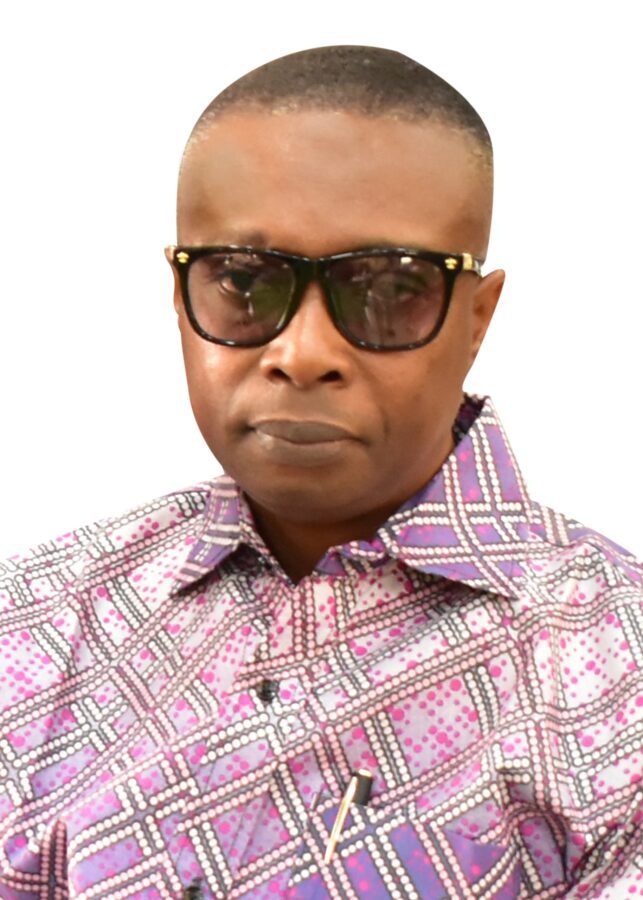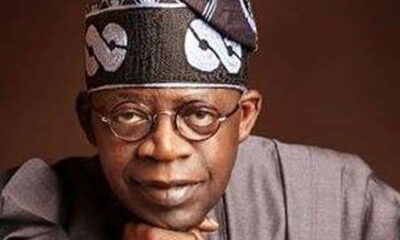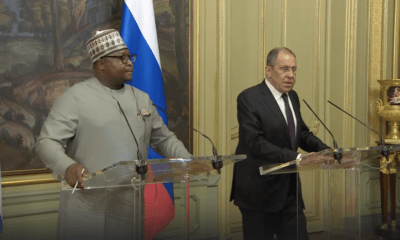Educational Issues
Why Universities Must Reach Out -By Adewale Kupoluyi
The series of developmental activities in the last three year taking place in FUNAAB fall in line with the Vice-Chancellor’s 12-point agenda, as encapsulated in his vision and mission statement tagged, “Excellence Cannot Be Compromised” that promises to ensure equity and fair-play in all relationships with stakeholders such that every stakeholder is committed to the advancement of the University…

The tripartite mandate of universities revolves around teaching, research, and community service. What seems to be central to these key responsibilities is funding. Without adequate financial resources, the ability of our citadels of learning to live up to expectations becomes a tall order. It is on this basis that endowment and collaboration become handy in the scheme of things. An endowment can be in the form of money, material resources, equipment, or other means for the use of the beneficiary. Over the years, many endowments, collaborations, and partnerships have been established at the Federal University of Agriculture, Abeokuta (FUNAAB), Ogun State.
The most recent ones involve the donation of three special breeds of seedlings, namely: Tenera Oil Palm, Gmelina, and Ekki by the renowned environmental activist, Mr. Desmond Majekodunmi, who is the son of the late Chief (Dr.) Moses Majekodunmi, a philanthropist and Nigeria’s First Republic Minister of Health. According to the Vice-Chancellor of FUNAAB, Prof. Kolawole Salako, the gesture is timely, particularly at a point in time when the world is advocating for conservation and restoration of forests to mitigate the challenges of climate change. Salako, a Professor of Soil Physics, is the Sixth Substantive Vice-Chancellor of FUNAAB and Fellow, Soil Science Society of Nigeria (FSSSN).
The Vice-Chancellor assured that the endowment would combat the negative effects of deforestation, forest degradation and create multiple benefits for the ecosystems and a source of revenue, which is in tandem with FUNAAB’s vision, which is “To be a centre of excellence in knowledge generation for global development and the sustainability of an environment-friendly society”. The Don also revealed that although the University has a variety of tree species and plantations across various locations, as the donation was unique and well appreciated, assuring that the seedlings would be properly utilised in meeting what the University has set out to achieve.
Prof. Salako, a former Deputy Vice-Chancellor (Development) of FUNAAB and Southwest Coordinator, African Cassava Agronomy Initiative (ACAI), under the auspices of the International Institute of Tropical Agriculture (IITA), Ibadan, Oyo State, encouraged members of the University community to maintain and maximise available resources, noting that the endowment can be used to leverage on how to stop encroachment. The Director, Directorate of University Farms (DUFARMS), who oversees the location of where the seedlings are planted, Mr. Joseph Olobashola, disclosed that Mr. Majekodunmi, even though decided to choose FUNAAB as one of the institutions to be supported with the tree species, was more concerned about the way and the speed at which the environment was getting depleted. He added that Mr. Majekodunmi was greatly alarmed by the fact that some useful tree species were already going into extinction because of illegal felling activities hence, his support for afforestation and the protection of the endangered species.
Describing the various tree species that were donated, the Director said the Tenera Oil Palm species was the most preferred oil palm used for commercial plantation in Nigeria while Gmelina is one of the softwoods used in agroforestry for the paper and timber industry while Ekki is an indigenous tree species, which is commonly used for the construction of bridges, buildings, marine, and application flooring, among others. The Director noted that although oil-palm was not new to the system, the University is willing to make good use of the donated Tenera species, which is the second generation of the crop.
According to him, “Already, we have 70 acres of first-generation Tenera species and that is where we get our oil-palm for our oil production. So an additional eight acres would help expand it. The good thing is that it is bringing another species of Tenera to look at and we might learn from it. There is the teaching component for students to learn from. So, the availability of some of these things can also increase the scope of available plant species that we have on campus”. He stated further that students would be carried along in this new development, stressing that the crops would be used for teaching, research, and learning purposes.
Similarly, FUNAAB is putting in place a University-based forest made up of various species of forest trees. The incumbent Deputy Vice-Chancellor (Development), Prof. Clement Adeofun stated that the University had benefited from past gestures of the Forestry Research Institute of Nigeria (FRIN) through a mandate by the Federal Government to select five universities across the nation for the planting of indigenous and exotic trees to complement the existing two percent of natural forest present in the country. He said the land for the plantation was prepared and planted by FRIN while the University was saddled with the responsibility of maintaining it, adding that the University would continue to preserve it, stressing that the concept for the plantation is also to provide boundaries for FUNAAB.
The DVC (Development), who supervises the activities of DUFARMS, noted that planting was going to be a continuous exercise depending on how the first phase that was donated would be managed by the University, adding that a plan was already in progress by the institute to donate an additional five to 10 hectares next year. Prof. Adeofun lauded the Vice-Chancellor for approving 10 hectares of the University’s choicest pieces of land for the plantation of the plants that were donated by FRIN, stressing that when members of FRIN met with the Vice-Chancellor approved the allocation of the best place for the project.
The series of developmental activities in the last three year taking place in FUNAAB fall in line with the Vice-Chancellor’s 12-point agenda, as encapsulated in his vision and mission statement tagged, “Excellence Cannot Be Compromised” that promises to ensure equity and fair-play in all relationships with stakeholders such that every stakeholder is committed to the advancement of the University and to reach out strongly to potential donors through fundraising through the alumni and other friends of the University while the endowment unit would also be strengthened towards virile income generation and fundraising.
In the final analysis, the main lesson from the above narrative is that beyond statutory allocations, our ivory towers should reach out more in line with their extension and community engagements to expand the frontiers of funding and opportunities that would boost the teaching and research; individuals, alumni, and corporate organisations should invest in university education; gesture items should be judiciously utilised; purposeful leadership should be entrenched that can ‘think out of the box’; and the imperative of sound and beneficial research through institutional synergy. Putting these measures in place would ensure that the basis for establishing universities, as citadels of learning and centres of academic excellence, is achieved.
Kupoluyi writes from Federal University of Agriculture, Abeokuta (FUNAAB), Ogun State @AdewaleKupoluyi



















